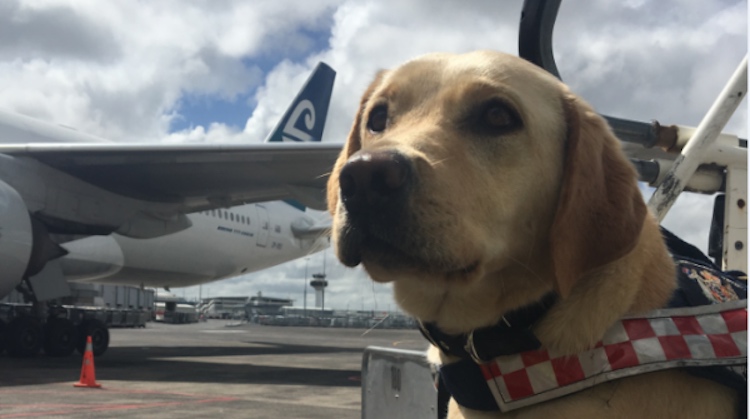
New Zealand’s government has proposed sweeping changes to the regulation of the country’s aviation sector, from damaged or lost luggage compensation, drug and alcohol management and the assessment of airline alliances, to making it an offence to harm or assault an aviation security officer’s dog.
The overhaul was part of a new Civil Aviation Bill announced on Friday by New Zealand Transport Minister Phil Twyford.
The bill, which sought to combine the Airport Authorities Act 1966 and the Civil Aviation Act 1990 and currently ran to about 400 clauses, was expected to be introduced to Parliament within the next 12 months and passed in mid to late 2020.
“Safety is our top transport priority and the proposed laws will make our airports, and flying, safer for New Zealanders and visitors to our country,” Tyford said in a statement.
Both Ministry of Transport and Civil Aviation Authority officials have worked on the bill since reviews of the Civil Aviation (CAA) Act, domestic aviation security, and drug and alcohol policy in 2014/15.
New proposals have been added during drafting of the bill and the public will have until July 6 to provide feedback.
The ministry is also holding meetings with airports, airlines and the wider aviation community to discuss the changes.
Key changes and streamlining of the old rules include:
- Commercial aviators involved in safety sensitive areas must develop drug and alcohol management plans, including random testing of safety sensitive workers. The Director of Aviation will also have the power to undertake non-notified drug and alcohol testing. Presently the CAA Act has no provisions related to drug and alcohol regulation.
- Allowing passengers to lodge claims for up to NZ$20,000 (A$18,863) for parties and NZ$15,000 (A$14,148) for individuals with the New Zealand Disputes Tribunal for lost, delayed or damaged baggage. This is a quicker and less costly option that the courts, but disputes over airline claims have not generally been available. This will also provide a more palatable option than much lower payouts from airlines – usually under US$2,500.
- Aviation Security (Avsec) staff rights will include the power to conduct stow baggage searches of international and domestic flights without the consent of passengers where there is a risk to aviation security or safety that requires an immediate response.
- In the absence of a pilot on board an unmanned aircraft (drone), the duties, powers and obligations of the pilot in command fall to the operator of the aircraft. Definition of accidents will now include unmanned aircraft, overriding present rules where there is no requirement to notify drone accidents. This has limited the CAA’s ability to investigate them, understand their safety risks and regulate them effectively. The CAA will also have the power to detain, seize and destroy drones if they are deemed a danger to people or property.
- The use of defence force personnel to act as aviation security officers (ASO) at airports when there is a significant security incident and screening is required at short notice.
- Making it an offence to assault an ASO or harm the officer’s dog. Existing rules only apply to obstructing officers.
- Providing a more robust regime for the authorisation of airline co-operative agreements, including setting an explicit and clear requirement that the minister assess whether the arrangements are in the public interest. A time limit and conditions would also be attached to any approval.
The bill will be scrutinised by the Justice Department to ensure it meets Bill of Rights requirements.
The full legislation can be read on the New Zealand Ministry of Transport’s website.















